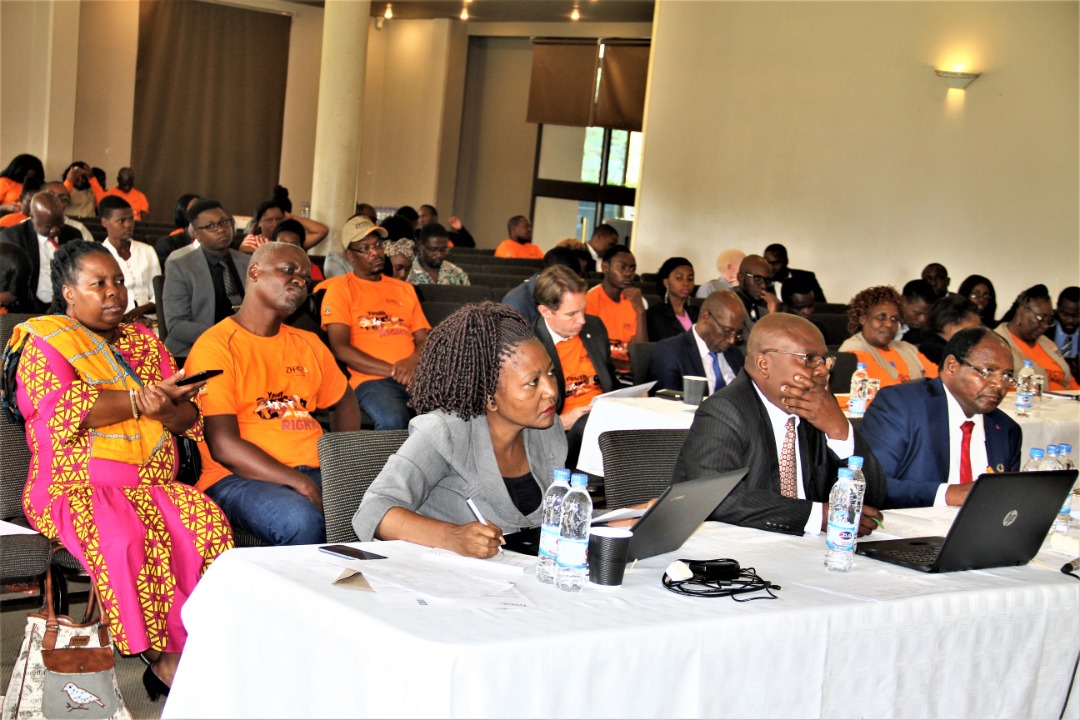The National Association of Youth Organisations (NAYO Zimbabwe) is an umbrella body for youth organisations working in Zimbabwe. Its vision is to see a repositioned, redefined and enhanced role of youth in communal, national, regional and international developmental processes. Its work seeks to redress the challenges that young people are facing and contribute towards their active participation in developmental processes through coordination, advocacy, mobilisation, capacity building and information sharing initiatives. Currently NAYO has a membership of over 184 youth organisations and about 1500 youth advocates from ten provinces in Zimbabwe.
To commemorate International Human Rights Day, NAYO, in partnership with youth and civil society organisations, launched a campaign on the Right to Water that will see youth defending people’s rights to water. #ClaimYourWaterRights is a mass mobilisation campaign that aims to awaken people to the injustice of their situation and spur them to claim their human rights to safe water and sanitation.

Water is vital for a healthy life. No one can exercise other rights (to work, to life and to education) if they do not enjoy their right to water. The right to water is the right of everyone to sufficient, safe, accessible and affordable water for personal and domestic use. Section 77 (a) of Zimbabwe’s Constitution (Amendment No. 20) guarantees the right to safe, clean and potable water. This provision reflects the state’s obligations to provide water to people in Zimbabwe as required by human rights instruments such as The African Charter on the Rights of the Child and Protocol to the African Charter on the Rights of Women in Africa. In 2010 the United Nations also passed a resolution recognising water and sanitation as a human right. This means that the government of Zimbabwe must provide water to everyone – boys, girls, women and men.
The right to water contains both freedoms and entitlements. The freedoms include the right to maintain access to existing water supplies and the right to be free from arbitrary disconnections or contamination. Moreover, the right to water must be adequate for human dignity, life and health. To commemorate International Human Rights Day, youth are standing up and making a clarion call to the government of Zimbabwe at its varying levels to respect, protect and fulfill the right to water as stated in The Constitution by ensuring:
- Water Availability: the water supply for each person must be sufficient and continuous for personal and domestic uses. These uses ordinarily include drinking, personal sanitation, washing of clothes, food preparation, personal and household hygiene. The current water rationing regime where households go for more than four days without water violates people’s right to water.
- Water Quality: the water required for personal or domestic use must be safe, free from bacteria and chemical substances that constitute a threat to a person’s health. Furthermore, water should be of an acceptable colour, odor and taste for personal or domestic use.
- Water Accessibility: water facilities and services have to be accessible to everyone without discrimination. Accessibility has several overlapping dimensions:
- Physical accessibility: adequate water facilities and services must be within safe physical reach for all sections of the population. Sufficient, safe and acceptable water must be accessible within, or in the immediate vicinity, of each household, educational institution or workplace.
- Economic accessibility: water facilities and services must be affordable for all. The direct and indirect costs associated with securing water must be affordable, and must not compromise or threaten the realisation of other human rights. Even in times of severe resource constraints, marginalised people must be protected by the adoption of relatively low-cost targeted programmes.
- Non discrimination: water facilities and services must be accessible to all, including the most marginalised sections of the population. States must also ensure women are not excluded from decision making processes concerning water resources. The disproportionate burden women and the young bear in the collection of water should be alleviated.
This calls for the Government of Zimbabwe to:
- Adopt measures to curb the unabating pollution of water sources and expedite construction of alternative water sources, namely Kunzvi and Muda Dams to supply water to the city of Harare;
- Prioritise the construction of water facilities that accommodate women’s requirements in areas that are prone to water cuts and shortages, easing the disproportionate burden women carry when accessing water;
- Take progressive steps towards realising the need for portable safe water in educational institutions, homes and business facilities across the country.
- Implement measures to ensure that domestic water must not be disconnected arbitrarily – especially because of failure to pay the rates.